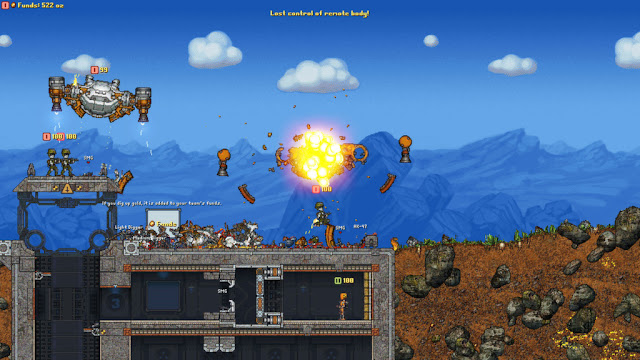platform-windows
| 4:10 PM
Cortex Command releases code under the AGPL v3
On 4:10 PM
Cortex Command is a mess, but in a good way. This bizarrely entertaining strategy blend has been undergoing continuous development since the early 2000s, having had its first main release in 2012. Seven years later, its creators decided it's time to let the community have a say.
Just one day ago developer Data Realms announced on the game's Steam page it was freeing the game's code under the GNU Affero License v3. While this release does not include any of the game's data or graphics, meaning you still have to purchase a full copy or replace them with your own, it is nevertheless welcoming news to see game studios embracing Free Software licensing, enabling users to modify the game at their own will.
The game itself is as fun as ever. An ungodly hybrid between X-COM, Terraria, and Starcraft, Cortex Command is one of those games whose chaotic approach to physics simulation can lead to some pretty hilarious moments. The game pits several factions in a messy planetary war for resources. The rest is up to the player to discover and go bonkers.
So if you do not mind about the proprietary data, by all means have a try. You can currently purchase the game for about 20 USD on the developer's website (linked above). The code can be accessed on the github page for the project.
Code license: AGPLv3
Assets license: Proprietary
Comments? Check out the forum thread.
















